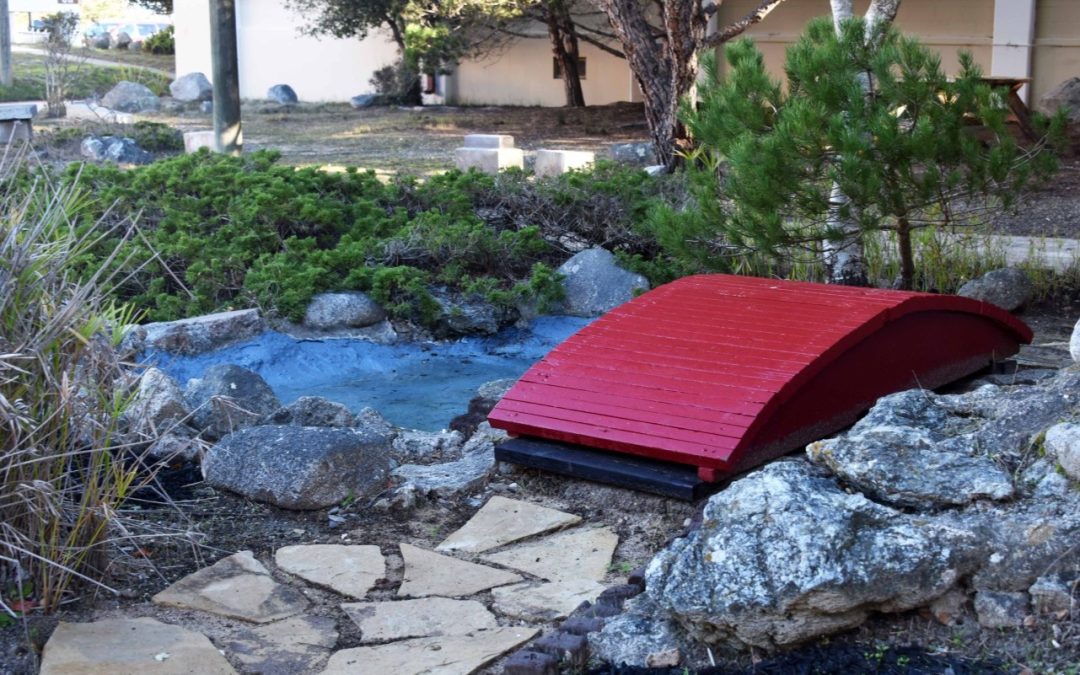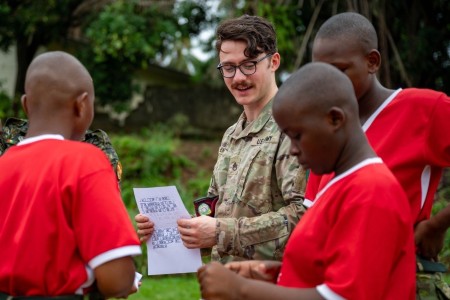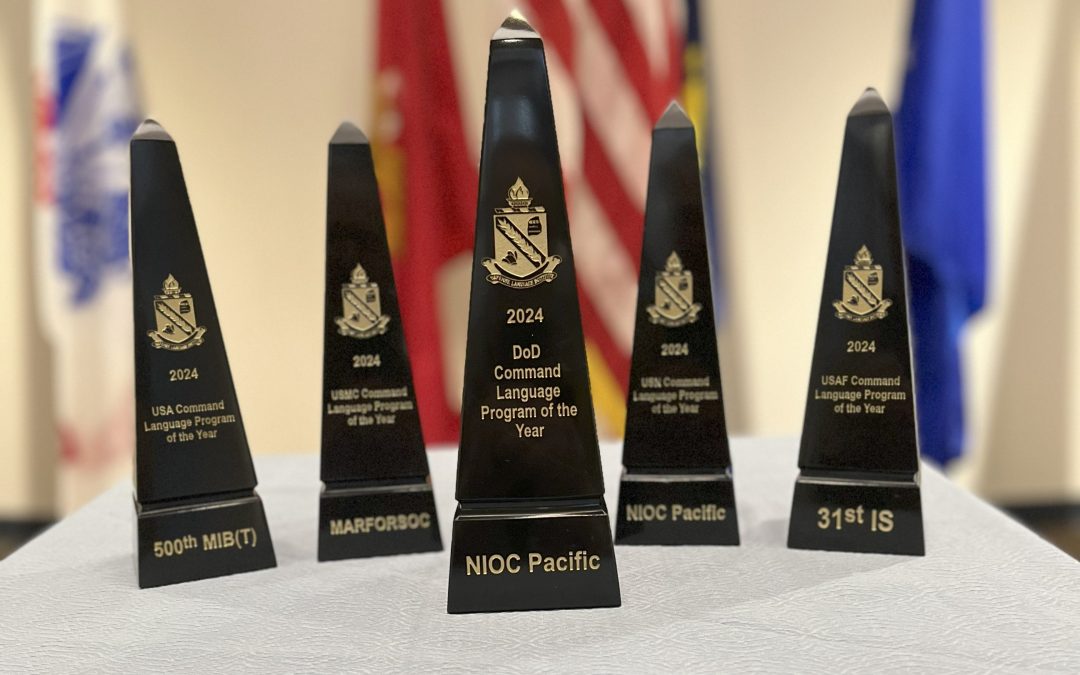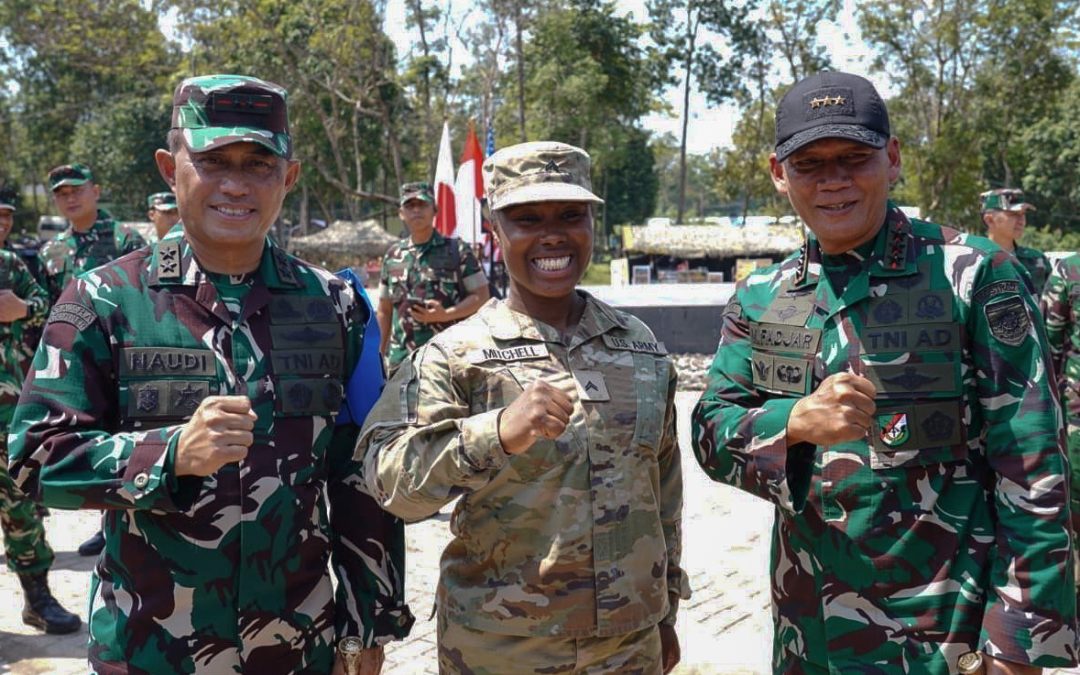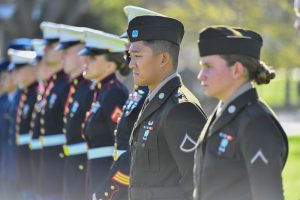
Military members attend a Veterans Day ceremony Wednesday, Nov. 10 on the upper Presidio of Monterey. (Photo by Leo Carrillo)
By Airman 1st Class Tanner Cope
MONTEREY, Calif. – The Defense Language Institute Foreign Language Center held a Veterans Day ceremony Wednesday, Nov. 10 on the upper Presidio of Monterey with military personnel, veterans, faculty, staff and students in attendance.
“Today we celebrate Veterans Day and recognize all who have served and continue to serve our nation with honor and distinction,” remarked DLIFLC Commandant Col. James A. Kievit.
The ceremony was held in DLIFLC’s central courtyard, overlooking the Berlin Wall memorial, featuring three individual partitions of the wall that once divided East and West Berlin. Guests included local community leaders and service commanders representing the Army, Marines, Navy, Air Force and Coast Guard.
“Veterans Day is a time when the nation stops and recognizes that we are free. We are a democracy. We are the most successful country in the world because we’ve had to fight for it over the years. And the ones who do that fighting, they have always shown up to serve their country…Veterans Day is a way to stop, pause and thank the vets,” said guest speaker, retired Vice Adm. Ronald A. Route, former President of the Naval Postgraduate School.
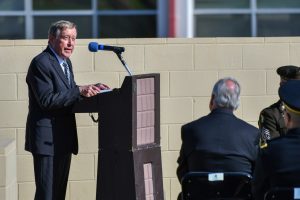
Vice Adm. Ronald A. Route, former President of the Naval Postgraduate School, speaks during a Veterans Day ceremony held Wednesday, Nov. 10 on the upper Presidio of Monterey with military personnel, veterans, faculty, staff and students in attendance. (Photo by Leo Carrillo)
Route then reflected on the 100th anniversary of Navy Cruiser Olympia’s journey from France to the U.S. to honor the body of an unknown Soldier from WWI. The casket was guarded day and night by a Marine Honor Guard aboard the ship and was offloaded to a 21-gun salute and the striking of eight bells.
Route closed by saying, “I’d like to thank the DLI leadership for giving us this opportunity to remember, and to share our gratitude to those in uniforms serving today, and to those who have served in the past.”
The event concluded with the commandant, Command Sgt. Maj. Ernesto Cruz, and the guest speaker presenting a wreath in honor of all veterans.
DLIFLC provides resident instruction in 15 languages at the Presidio of Monterey, California, with the capacity to instruct another 65 languages in Washington, D.C. The Institute has graduated more than 230,000 linguists since 1941.
In addition, multiple language training detachments exists at sites in the U.S., Europe, Hawaii and Korea, spanning all the U.S. geographic combatant commands in support of the total force.

